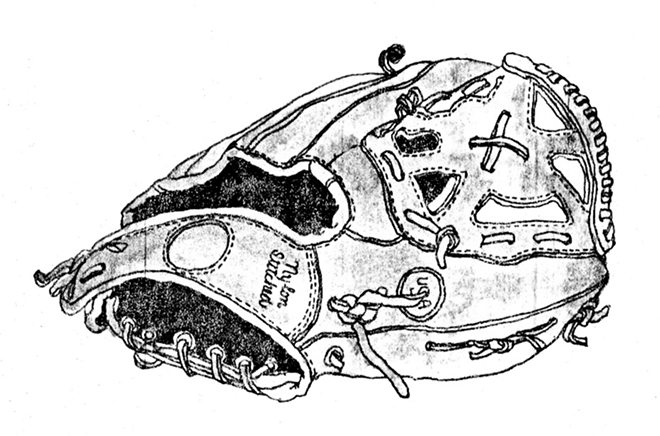You gave us a vision of grace a Greek
statue cast in Africa touched to life
by a Sistine hand Week after week
you showed us reflexes keen as a knife
instincts pristine and pure muscles like stones
Your skill made beauty with a bat and ball
and showed the possibilities in our bones…
Growing up in Flatbush, I was a member of the Police Athletic League, designed to keep city kids like me out of trouble by funneling our energy into sports. It worked, mostly. Babe Ruth was honorary chairman of its board, and FDR threw the weight of his presidency behind it. During the Great Depression, instead of cutting programs, Roosevelt’s New Deal boosted the middle and lower classes back onto their wobbly feet.
The P.A.L. wasn’t just for boys, and it wasn’t just baseball: our father met our mother while coaching her Twilight League basketball team (which merged into the P.A.L.) back when its guards couldn’t step across the half-court line. Today, a 6'8" black gay female player can snatch a rebound at one end, dribble the length of the court, and dunk the ball at the other. Have to admit, there’s been some progress.
My dad also encouraged me to learn boxing at the P.A.L., so I could survive neighborhood bullies, but without my glasses I had trouble hitting anyone who wasn’t actually talking to me and standing still. (I solved the problem by reading comic books to the main bullies, a pair of foul-mouthed Irish brothers who weren’t all that literate. “Freakin’ A!” they’d shout, favoring the adventures of Sheena Queen of the Jungle.)
These memories were kicked off when we went to see 42, the fine new movie about Jackie Robinson, who integrated Major League Baseball when he joined the Brooklyn Dodgers; their GM, Branch Rickey — played by a cigar-chomping Harrison Ford, obviously enjoying himself — brought Robinson up in 1947. The movie’s shots of Ebbets Field carried me back to the P.A.L, which lavishly gave us free tickets. Wandering around the cozy bleachers during long summer afternoon games, we loved baseball, the Dodgers, and Ebbets Field about equally.
Although it was pretty small for the major leagues, Ebbets Field was, unlike the Trop, easy to get to, and you didn’t need a car. The whole experience was educational: we learned how to get around Brooklyn by taking the BMT subway to Prospect Park, a few blocks from the Field; the Nostrand Avenue trolley, slower but cheaper, could drop us off within walking distance. On game days, the whole city was on the move.
All of my friends and I wanted to grow up and play for the Dodgers, but we were also fans of Willie Mays, the New York Giants’ centerfielder who arrived four years after Jackie. My grandma and her three elderly sisters (younger than I am now) used to sit around our kitchen table smoking and playing pinochle while listening to the games. They knew their cards and their baseball statistics. They also respected staying power, and favored Mays, who was less educated but equally disciplined in resisting racial insults. (He played 22 years in the majors, compared to Robinson’s 10.) Both players set a standard of athletic ability and human decency that’s been hard to match.
A recent disturbing report shows the percentage of black baseball players in the majors has fallen from 27 percent to 7.7 percent, mainly because of the lack of college scholarships in baseball, compared to football and basketball. Maybe 42’s inspirational story of Robinson, who starred in four sports at UCLA, will help bring them back.
…If only I
trying to catch this poem with clumsy hands
could turn like you at the crack of the bat
and race headlong fearless toward the white stands
and at the last moment (losing my hat)
reach up and pluck it from the electric air
you would be proud of me Willie if you
read poetry And our poem would be there
integrated in all the schools you never knew
for all the young centerfielders to read and share
—Both quotes from “For Willie Mays” from Lucky Bones by Peter Meinke (U. of Pittsburgh Press, to be published in 2014)


